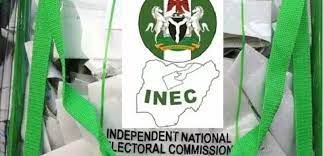Former Independent National Electoral Commission (INEC) chairman, Prof Attahiru Jega, has called for amendments to the Electoral Act of 2022.
Jega acknowledged that the country’s electoral law is currently the best in Nigeria’s history. He, however, said it is not perfect and requires further amendments to remove ambiguities and clarify and strengthen some of its sections.
It was gathered that Jega said this at a retreat organised for senators by the National Institute for Legislative and Democratic Studies (NILDS) in Ikot Ekpene, Akwa Ibom State.
In his submissions, Jega recommended that the electronic transmission of results should be made mandatory from the next general elections in 2027.
Additionally, he suggested that the president should not have the power to appoint the chairman and National Commissioners of INEC to ensure the commission’s impartiality.
Jega also proposed that the law should be reviewed to ensure that all cases arising from the conduct of elections are resolved and judgements made before the date of swearing-in.
This would involve uploading the results from polling units and the result sheets used during the collation process at various levels.
“INEC would have enough time to prepare for this if the Act is amended early enough in the ensuing electoral cycle,” he said.
“There is a need to enhance inclusion of women, if necessary by up to 35% of elective positions in parliament, and in all political parties’ candidate lists,” Jega said.
“There is a need for the legislation to allow even candidates outside the political parties, as well as tax-paying citizens, to file suits against candidates who provide false information to INEC regarding their candidature.
“Although Sections 132(8) & (9) have given timelines within which the Tribunals and courts of appellate jurisdiction should issue verdicts, there is need, particularly in respect of elected executive positions, to ensure that all cases are resolved and judgements made before the date of swearing-in.
“Review the process of appointments into INEC, specifically to divest/minimize the involvement of the President in the appointment of Chairman and National Commissioners of INEC, in order to free the commission from the damaging negative perception of “he who pays the piper dictates the tune”.
“The Justice Uwais Committee recommended that the responsibility for advertising, screening, shortlisting and submission to the Council of State for recommendation to the Senate for confirmation hearings, for this category of officers, should be entrusted to the National Judicial Council (NJC).
“On second thought, and for obvious reasons, I will recommend a joint committee of the National Assembly be given this responsibility, with criteria, for transparency, non-partisanship and stakeholder engagement for the process. The applicants/nominees for these appointments should be subjected to public scrutiny with regard to knowledge, skills, good character and non-partisanship. Guidelines should be provided for submitting petitions against any nominee during this process.”












